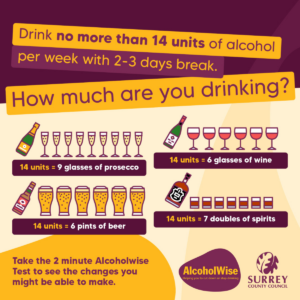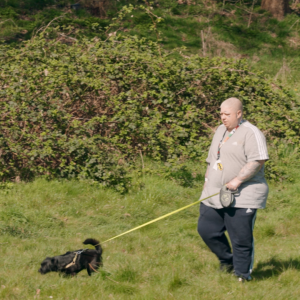Statistics from British Heart Foundation show that over half (58%) of adults in Surrey have obesity or excess weight, less than a third (28%) do not meet physical activity guidelines and around 10% smoke. These risk factors significantly increase your risk of developing heart and circulatory diseases.
The good news is that many people can reduce their risk of these conditions by making small changes to their lifestyle.
What you eat, how much alcohol you drink, how much you move, whether you smoke and carrying excess weight are five things that can have a big impact on your heart health.
Stop smoking
In the UK, it’s estimated that at least 15,000 deaths each year from heart and circulatory diseases can be attributed to smoking. Chemicals found in cigarettes damage your heart and blood circulation, increasing your risk of heart attack and stroke.
Research shows that you are 3 times more likely to successfully quit smoking with the support from your local stop smoking service in combination with stop smoking aids, such as e-cigarettes or patches. If you’re thinking about quitting smoking, complete our self-referral form and a member of our team will be in touch within two working days!
Maintain a healthy weight
Maintaining a healthy weight is important for your overall health and wellbeing. Living with excess weight or obesity can increase your risk of heart and circulatory diseases like heart attacks, strokes and dementia.
Our free adult weight management service offers a range of programmes, developed by a team of dietitians and behaviour change experts who will support and guide you each step of the way, empowering you to make healthy changes that last.
If you are concerned about your weight and would like help to start managing it, complete our short referral form or you can speak to your GP for a referral.
Eating a balanced diet
Eating a healthy, balanced diet means eating a wide variety of foods in the right portions. The best way to approach this is to group foods. Try to eat:
– At least 5 portions of a variety of fruit and vegetables
– Meals based on starchy foods such as bread, rice, potatoes and pasta. Swap to wholegrain varieties as much as possible.
– Some milk and dairy products or dairy alternatives. Where possible, go for lower fat and lower sugar products.
– A variety of beans, pulses, fish, eggs and meat. These foods are all good sources of protein.
If you’re having foods and drinks that are high in fat, salt and sugar, have these less often and in small amounts. The recommended daily salt intake for adults is less than 6 grams (1 teaspoon) per day.
Alcohol
If you drink alcohol, it’s important to keep within the recommended guidelines – no more than 14 units of alcohol a week, spread across 3 days or more. Sticking within these guidelines lowers your blood pressure and risk of stroke.
Exercise
It can lower your risk of major illnesses, such as coronary heart disease, stroke and cancer and lower your risk of early death by up to 30%. The best part is that it’s free, easy and has an immediate effect on your health. It’s recommended that adults do at least 150 minutes of moderate-intensity activity per week.
Walking, cycling, and swimming are among our suggestions, but did you know that everyday activities also count? Think doing housework, gardening or playing with your children or grandchildren. If you’re not sure what counts, moderate activity will raise your heart, cause you to breathe faster and make you feel warmer.
Speak with your GP first if you have not exercised in a while or if you have a medical condition that concerns you.




